
Can Babies Have Grapes? Grapes are some of the most common fruits all over the world. And since they are so loved in both their natural form as well as in smoothies, juices, and made raisins, you might wonder if you can give your baby these fruits as well.
But just like every time you introduce a new food to your baby's diet, deep research is required. Plus, there are many types of grapes, and the way you introduce this food to your baby's meals is equally important.
Jump to:
- Can Babies Have Grapes?
- When can babies eat grapes?
- Allergic reaction to grapes
- Health benefits of grapes for babies
- When can a baby eat grapes with skin?
- Generally, what fruit should the baby eat first?
- Can babies have grape juice?
- Can toddlers have grapes?
- How Do I Cut Grapes For Babies?
- Can baby eat green grapes?
- Can babies eat raisins?
- Health benefits of raisins in babies
- 5 Best baby recipes using grapes
Can Babies Have Grapes?
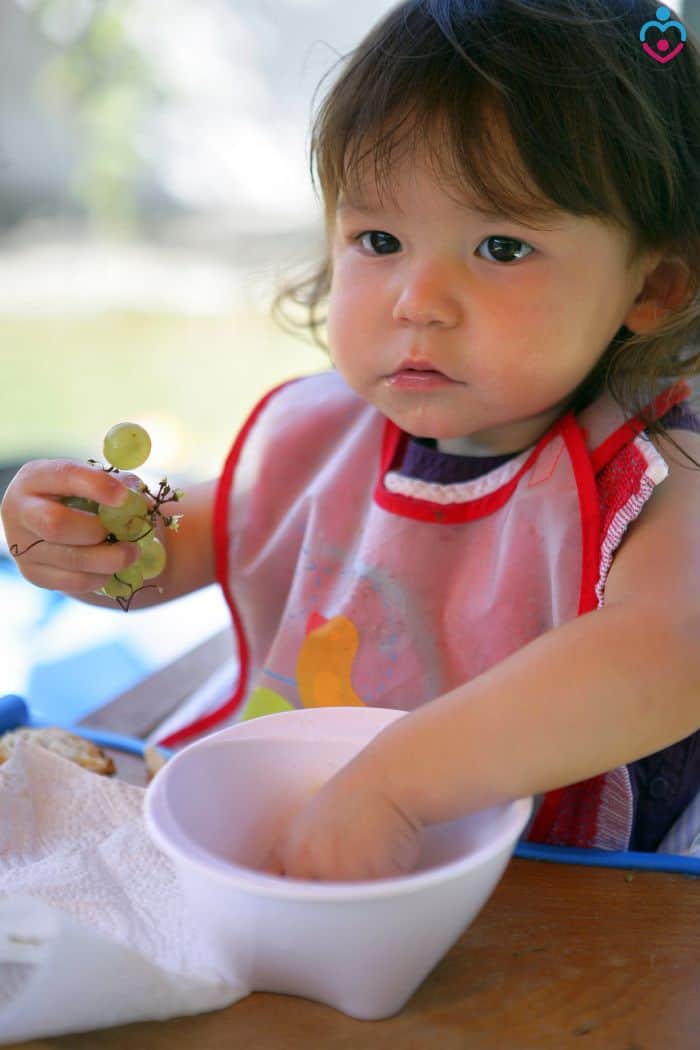
Your baby can start having grapes as soon as they turn 6 months old. However, the way you feed them this fruit and the number of grapes they have are important details to take into account.
![]()
When can babies eat grapes?

Babies can enjoy grapes as soon as they start eating solid meals or when they begin the transition from breastmilk to solid foods. However, to make sure that your baby has no reaction to grapes, try feeding them grapes alone for one snack and see if you notice any side effects. If they seem to receive these fruits in their diet well, you can add them to recipes with more than one ingredient.
![]()
Allergic reaction to grapes
Like any other food, grapes can also cause allergic reactions in some babies. Grape allergies are rare in babies and toddlers, so this shouldn'tbe a concern in general. However, if your baby presents symptoms such as rashes, hives, or upset stomach and running nose after you gave them grapes, it is wise to stop giving them this fruit and talk to their pediatrician.
![]()
Health benefits of grapes for babies
Grapes are considered not only safe but also rich in nutrients for your baby.
- Red grapes are the best in terms of vitamin C concentration, and they are easy to find on the market. These fruits are rich in vitamin C.
- Only half a cup of grapes can include 18% of the vitamin C your baby needs in a day between 6 months and 12 months old.
- Grapes are an excellent natural antioxidant that will help your baby's cells to develop and absorb the iron they need. These fruits also contain vitamin K, which is essential for the process of blood clotting.
![]()
When can a baby eat grapes with skin?
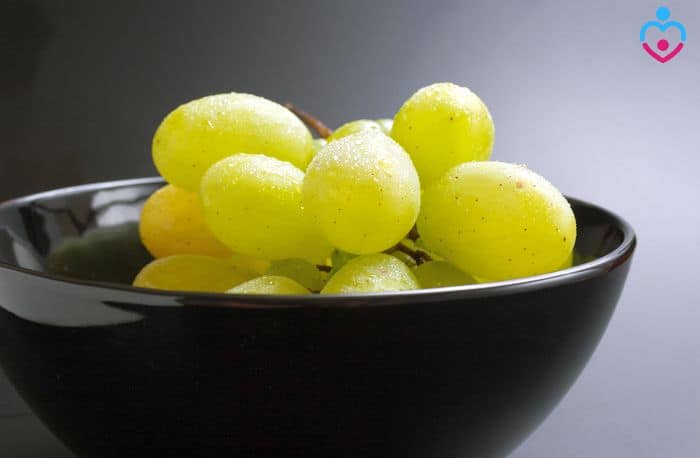
Even if grapes don't present an allergy risk, they do present a choking hazard.
- To avoid choking hazards for a baby between six months to 12 months, you should mash the grapes and peel them as well. They will not be able to chew the grapes safely and adequately, so if you want to avoid all issues that might appear, these two aspects should be considered.
- The main problem with peeling grapes is that many antioxidants and nutrients are in the skin of these delicious fruits.
- You can add grapes to purees, but it is not recommended to serve them as a meal but rather as an ingredient.
![]()
Generally, what fruit should the baby eat first?
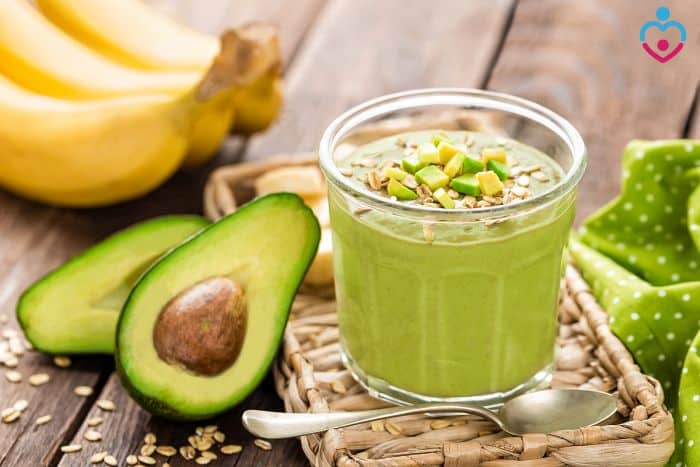
Many fruits could qualify as a baby's first solid meal. However, the banana seems to win among all the rest as it is best received by babies of six months old.
- Bananas have a creamy texture; they are easy to mash and chew and rich in nutrients.
- avocados> are also excellent choices for first fruits when it comes to babies for the same reasons as bananas. You can also start the journey to a healthy diet with apples, pears, or mangoes.
- Even if grapes can be fed to a six-month-old baby, some pediatricians recommend waiting a little longer until introducing them to a baby's diet.
- Ensure they eat other fruits well first, such as bananas, avocados, or apples, and then start adding grapes slowly until they become a regular part of their diet.
![]()
Can babies have grape juice?
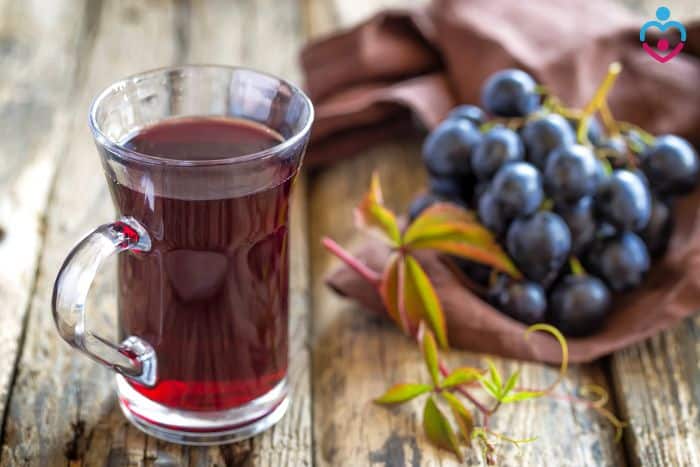
Babies can have grape juice twice a week, not daily, as it might upset their stomach.
- According to AAP, they can have grape juice starting at six months of age, but they should drink this juice from a sip cup rather than a bottle.
- As far as the quantity of grape juice your baby can have, this should be anywhere between 4 ounces and 6 ounces.
- It is equally important to make sure your baby has naturalgrape juice, no added sugar, or other sweeteners.
![]()
Can toddlers have grapes?
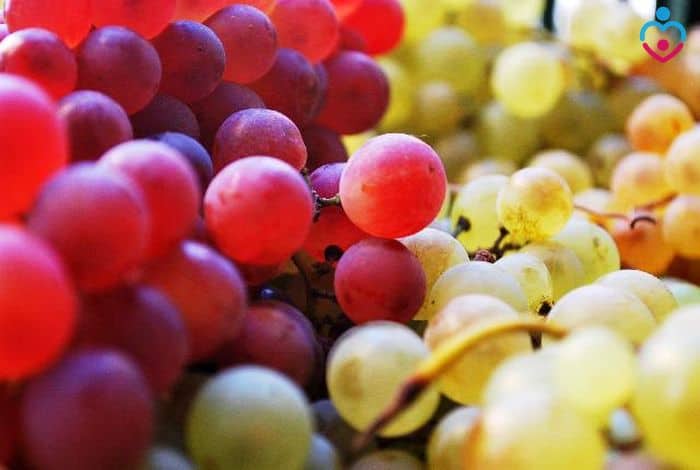
Babies and toddlers can have half a cup of grapes a few times a week. You don't have to feed them grapes every day, even if it can be a healthy snack between meals.
- Stick to ½ cup three or four times a week until they turn two years old.
- You can use the same quantity as part of their purees or simply cut the grapes and serve them on a plate.
- One aspect you need to pay attention to is the seeds that should be removed for six months old.
- Also, for babies between six months and one year old, removing the skin of the grapes would be recommended.
- After one year old, toddlers can have grapes with skin on them to be more prepared to digest them.
![]()
How Do I Cut Grapes For Babies?
Depending on the age of your baby, you will serve them grapes in different ways.
- If your baby is six months old, you want to peel the grapes and serve them mashed. You can also give them grape juice at this point.
- For toddlers older than one year, you can simply cut the grapes in half or quarters according to their size and serve them on a plate so your baby can eat them one by one. You will not have to peel them at this point, and you can also add them in purees and smoothies.
![]()
Can baby eat green grapes?
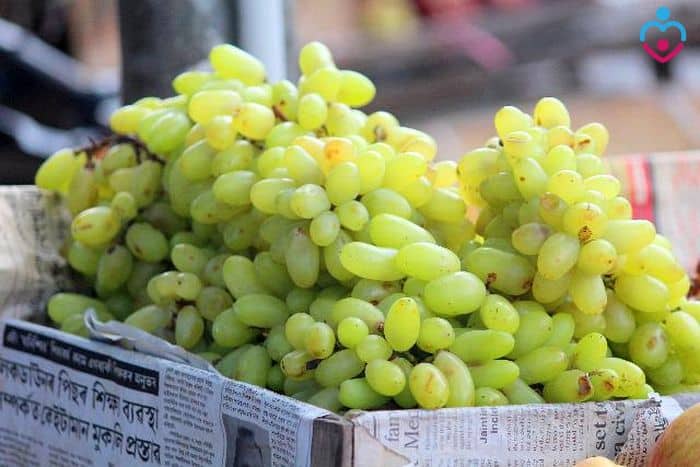
There is no significant difference between red grapes and green grapes, and your baby can eat both kinds just fine.
- If you want to feed them green grapes, you will have to follow the same rules as feeding them red grapes or any other kinds of grapes.
- You can also find grapes with seeds as well as grapes without seeds. The best types of grapes you can give to your baby are organic ones.
![]()
Can babies eat raisins?
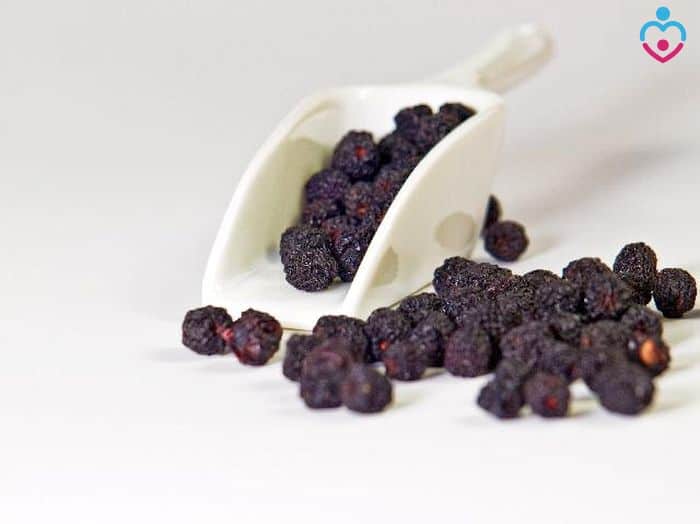
We can't talk about grapes without including raisins in our discussion.
- Raisins are essentially dried grapes with or another sweetener. The amount of added sugar differs from one product to another. You can also find plain raisins without any added sugar on the market.
- Unfortunately, raisins and other dried fruits are a choking hazard, so your baby will not be able to enjoy them until they are at least 18 months old.
- Some pediatricians recommend soaking raisins in warm water even after this age, so they become softer and easier to chew. You can also mince them and add them to your baby's food.
- If you are concerned about allergies, it is essential to know that raisins don't generally give allergic reactions.
- If your baby has no side effects to eating grapes, they will most likely enjoy raisins just as much as long as you consider the choking hazard.
![]()
Health benefits of raisins in babies
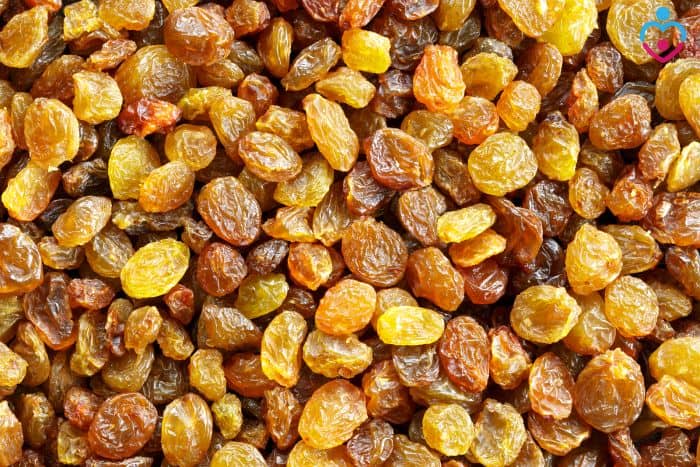
If your baby is at least 18 months old, you can start introducing raisins to their diet. Raisins can be one of the best natural sweeteners.
- Raisins are rich in calcium and iron, which will help your toddler develop healthy bones and a robust immune system.
- They also have plenty of potassium and fiber, so they help avoidconstipation.
- Giving raisins to your toddler can support a healthy digestive system and make for a sweet and healthy snack between meals.
- There are, however, two aspects to consider when it comes to raisins. They can be high in sugar, and they can give your baby cavities, so dentists don'trecommend this snack daily.
![]()
5 Best baby recipes using grapes
If you decided to add grapes to your baby's diet, you would love the following recipes. They are easy to make, and babies tend to love them. Plus, they bring a crucial nutritious value to your child's diet.
1. Grape sorbet
Grape sorbet is one of the best recipes for a six-month-old baby.
- All you have to do is freeze three cups of grapes after you peeled them. Take the grapes out of the freezer and blend them along with ¼ cup of lemon juice.
- Serve it to your baby immediately so they can get the freshness and the sweet taste of this puree.
- This is an excellent recipe for babies that are going through the teething phase as well since it will alleviate their pain too.
![]()
2. Grape and banana puree
To make this delicious puree, you will need three cups of peeled grapes and one banana, as well as a type of milk of your choice.
- Place the grapes along with the chopped banana in the blender and add one cup of milk.
- Mix the ingredients until you obtain a creamy puree that your child will love as breakfast and even lunch. This recipe might not be a good choice for dinner, though, because it contains too much sugar.
![]()
3. Grape puree and chicken
Once your baby starts eating meat, this recipe is a great choice for lunch or dinner.
- It is one of the healthiest ways to add grapes to your baby's diet, as well as the protein they get from the chicken.
- You can boil a few pieces of chicken breast and allow them to cool down.
- Cut the chicken into pieces that can go in the blender or food processor quickly.
- Add two to three cups of peeled grapes and a cup of water.
- Blend until you obtain a pure consistency.
![]()
4. Sweet potato, grape, and chicken puree
Sweet potatoes go great with the sweetness of grapes, and if you add chicken to this combination, you can obtain a healthy meal for your toddler.
- You will need a small sweet potato, four cups of grapes, and about one cup of chopped chicken breast.
- Boil the chicken and the sweet potato in a separate bowl and allow them to cool down.
- Once the potato and chicken are cooled down, you can add them to the blender along with the grapes and two cups of water.
- Mix the ingredients until you obtain a smooth paste. Feed it to your baby for lunch or dinner.
![]()
5. Grape, avocado, and couscous puree
You will need a cup of couscous, one avocado, and three cups of grapes for this recipe.
- Chop the avocado into smaller pieces and peel the grapes. Boil the couscous and allow it to cool down.
- When the couscous is at room temperature, add it to a blender along with the avocado and the grapes.
- Mix until you get a creamy consistency and feed it to your baby.
- This recipe will go great with some lemon juice on top of it, so the avocado doesn't change its color.
![]()
As you can see, grapes can be a great food to give your baby. As long as you consider the choking hazards presented by grapes, your baby will enjoy plenty of benefits from these delicious fruits.
Keep in mind to talk to your pediatrician if you notice any side effects on your baby after they ate grapes for the first time.
![]()


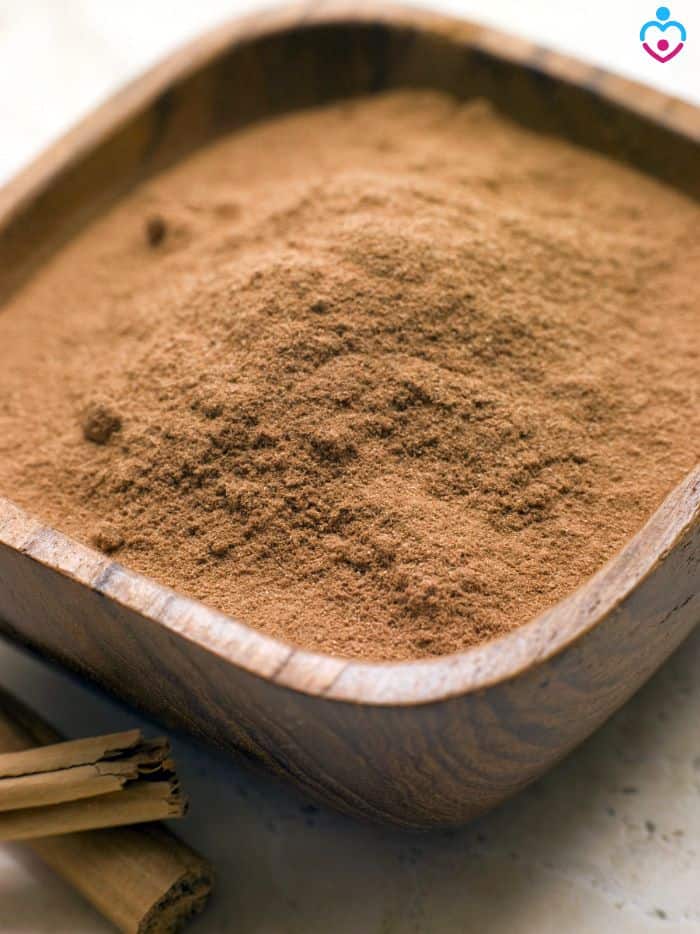
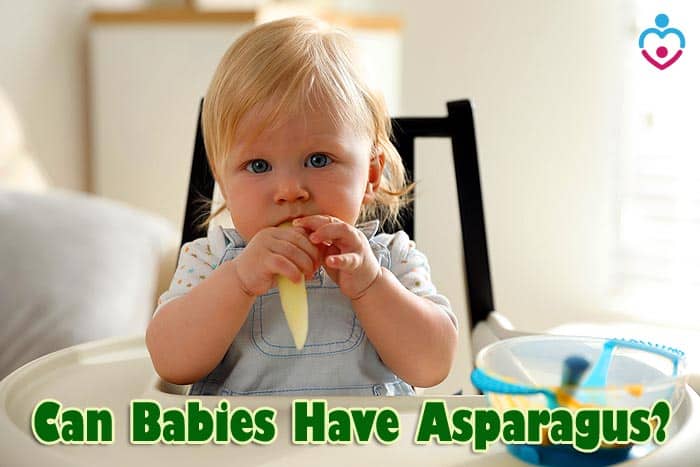
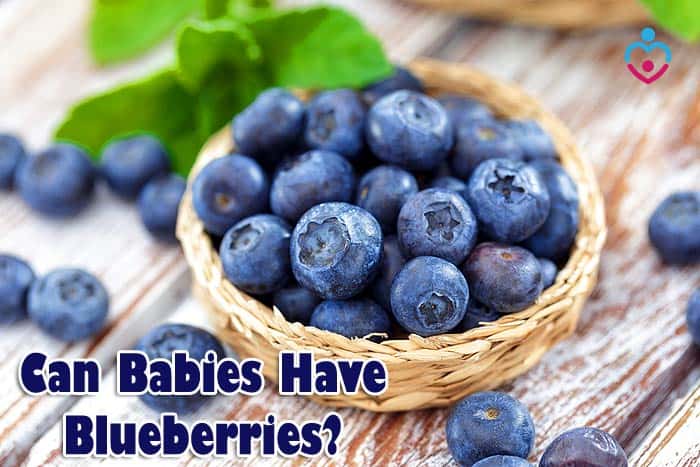
Leave a Reply